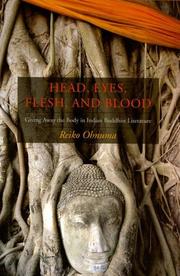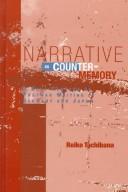| Listing 1 - 10 of 235 | << page >> |
Sort by
|
Book
ISBN: 9814585815 9814585807 Year: 2014 Publisher: Singapore : Springer Singapore : Imprint: Springer,
Abstract | Keywords | Export | Availability | Bookmark
 Loading...
Loading...Choose an application
- Reference Manager
- EndNote
- RefWorks (Direct export to RefWorks)
This book explores how the global trend of quality assurance in higher education is related to the boom of measuring learning outcomes in Japan. It also presents a comparative study in higher education policy between Japan and the US, examining how both countries have reacted to the demands of globalization. This comparative view will help readers understand the present issues Japanese higher education faces and grasp the commonalties and differences between American and Japanese higher education. The book first explores the forces of globalization that have resulted in Japanese universities emphasizing student learning outcomes. Next, it examines how Japanese higher education has learned from the experience of the U.S., whose higher education reform has been regarded as a model for Japan. The book explains why quality assurance for teaching and learning has become important for all Japanese higher education institutions. Higher Education on a global basis is now facing a great issue. In order to help students in a competitive global market, universities need to become more teaching-and-learning-centered and develop more internationalized curricula. This book provides comparative views for cultural and structural similarities and differences in higher education in two countries which could explain significant differences in the gains students make in college. It will help readers understand not only how student learning outcomes can be measured, but why universities throughout the world must continually strive to become world-class institutions.
Education, Higher --- Evaluation. --- Educational tests and measuremen. --- International and Comparative Education. --- Assessment, Testing and Evaluation. --- Sociology of Education. --- International education . --- Comparative education. --- Assessment. --- Educational sociology. --- Education and sociology --- Social problems in education --- Society and education --- Sociology, Educational --- Sociology --- Education --- Education, Comparative --- Global education --- Intellectual cooperation --- Internationalism --- Aims and objectives --- History --- International education.
Book
ISBN: 2720010952 9782720010958 Year: 1994 Publisher: Paris Maisonneuve
Abstract | Keywords | Export | Availability | Bookmark
 Loading...
Loading...Choose an application
- Reference Manager
- EndNote
- RefWorks (Direct export to RefWorks)
Japanese language --- Japonais (Langue) --- Grammar --- Grammaire --- J5200 --- Koguryo language --- Japan: Language -- grammar

ISBN: 0231137087 9780231137089 0231510284 9780231510288 1322438668 Year: 2007 Publisher: New York : Columbia University Press,
Abstract | Keywords | Export | Availability | Bookmark
 Loading...
Loading...Choose an application
- Reference Manager
- EndNote
- RefWorks (Direct export to RefWorks)
Head, Eyes, Flesh, and Blood is the first comprehensive study of a central narrative theme in premodern South Asian Buddhist literature: the Buddha's bodily self-sacrifice during his previous lives as a bodhisattva. Conducting close readings of stories from Sanskrit, Pali, Chinese, and Tibetan literature written between the third century BCE and the late medieval period, Reiko Ohnuma argues that this theme has had a major impact on the development of Buddhist philosophy and culture. Whether he takes the form of king, prince, ascetic, elephant, hare, serpent, or god, the bodhisattva repeatedly gives his body or parts of his flesh to others. He leaps into fires, drowns himself in the ocean, rips out his tusks, gouges out his eyes, and lets mosquitoes drink from his blood, always out of selflessness and compassion and to achieve the highest state of Buddhahood. Ohnuma places these stories into a discrete subgenre of South Asian Buddhist literature and approaches them like case studies, analyzing their plots, characterizations, and rhetoric. She then relates the theme of the Buddha's bodily self-sacrifice to major conceptual discourses in the history of Buddhism and South Asian religions, such as the categories of the gift, the body (both ordinary and extraordinary), kingship, sacrifice, ritual offering, and death. Head, Eyes, Flesh, and Blood reveals a very sophisticated and influential perception of the body in South Asian Buddhist literature and highlights the way in which these stories have provided an important cultural resource for Buddhists. Combined with her rich and careful translations of classic texts, Ohnuma introduces a whole new understanding of a vital concept in Buddhists studies.
Buddhist literature --- Sacrifice in literature. --- Themes, motives. --- Gautama Buddha --- Pre-existence. --- Religious literature --- Gautama, --- Fo-tʻo --- Buddha, --- Gotama, --- Shih-chia-mou-ni --- Shijiamuni --- Sākyamuni --- Sŏkka --- Buddha --- Sŏgamoni --- Shākyamuni --- Shakamuni-butsu --- Shakuson --- Shittaruta --- Shih-chia Ju-lai --- Phraphutthačhao --- Pultʻa --- Putta --- Siddhartha Gotama --- Gotama, Siddhartha --- Budda --- Śākya-thup-pa --- Shi-chia-mu-ni --- Siddhartha Gautama --- Gautama, Siddhartha --- Bhayavat --- Tathagata --- Siduhat Kumāraya --- Puttar --- Puttan̲ --- Kautama Puttar --- Puttapirān̲ --- Cittārtta Kautama Puttar --- Siddhārtha, --- Tất Đạt Đa --- בודהא --- 釈迦 --- 释迦牟尼 --- 釋迦牟尼 --- Sitthattha Khōtama --- Khōtama, Sitthattha --- Gotama, Siddhatta --- Buddhist literature - India - Themes, motives. --- Gautama Buddha - Pre-existence.
Book
ISBN: 9811551405 9811551391 Year: 2021 Publisher: Gateway East, Singapore : Springer,
Abstract | Keywords | Export | Availability | Bookmark
 Loading...
Loading...Choose an application
- Reference Manager
- EndNote
- RefWorks (Direct export to RefWorks)
This book inquires into the Capability Approach, a value theory of freedom, which crystalizes the interests of Marx, Welfare Economics, Social Choice, and Ethics. The capability approach has attracted many people as a promising interdisciplinary approach to human well-being and social worlds, finely overarching ethical and economic concerns. It has well challenged essential characteristics of welfare economics, which focuses on the criterion of efficiency with the concept of utility, by explicitly incorporating normative criteria such as agency, well-being and real freedom into positive analysis. However, it has a bit operational and methodological difficulties such that how to estimate an individual capability set which includes potential multi-dimensional functioning vectors. This book reminds the reader of what traditional economics has left behind, by examining historical backgrounds, scrutinizing philosophical foundations and providing an operational formulation of the capability approach: indispensable for understanding what the capability approach is about and what it can achieve. Reiko Gotoh is Professor at the Institute of Economic Research, Hitotsubashi University, Tokyo.

ISBN: 0585059381 9780585059389 9780791436639 0791436632 9780791436646 0791436640 0791436632 0791436640 1438421745 9781438421742 Year: 1998 Publisher: New York : State University of New York Press,
Abstract | Keywords | Export | Availability | Bookmark
 Loading...
Loading...Choose an application
- Reference Manager
- EndNote
- RefWorks (Direct export to RefWorks)
German fiction --- Japanese fiction --- World War, 1939-1945 --- National socialism in literature. --- Atomic bomb in literature. --- Literature, Comparative --- Comparative literature --- Philology --- World War, 1939-1945, in literature --- History and criticism. --- Literature and the war. --- German and Japanese. --- Japanese and German. --- History and criticism --- 20th century --- Literature and the war --- Atomic bomb in literature --- Literature [Comparative ] --- German and Japanese --- Japanese and German --- Japanese fiction - 20th century - History and criticism. --- Literature, Comparative - German and Japanese. --- Literature, Comparative - Japanese and German.
Book
ISBN: 0813936713 9780813936710 9780813936703 0813936705 Year: 2015 Publisher: Charlottesville : Baltimore, Md. : University of Virginia Press, Project MUSE,
Abstract | Keywords | Export | Availability | Bookmark
 Loading...
Loading...Choose an application
- Reference Manager
- EndNote
- RefWorks (Direct export to RefWorks)
"This book recounts how forward-looking Southern boosters, entrepreneurs, and architects in St. Augustine, Richmond, and Atlanta carefully crafted usable pasts to promote sectional reconciliation and attract northern tourists and investors after the Civil War"--Provided by publisher.
Capitalism --- Reconciliation --- Public spaces --- Memory --- Tourism --- City promotion --- Boosterism (Place promotion) --- Cities and towns --- Promotion of cities --- Promotion of towns --- Town promotion --- Municipal government --- Place marketing --- Holiday industry --- Operators, Tour (Industry) --- Tour operators (Industry) --- Tourism industry --- Tourism operators (Industry) --- Tourist industry --- Tourist trade --- Tourist traffic --- Travel industry --- Visitor industry --- Service industries --- National tourism organizations --- Travel --- Retention (Psychology) --- Intellect --- Psychology --- Thought and thinking --- Comprehension --- Executive functions (Neuropsychology) --- Mnemonics --- Perseveration (Psychology) --- Reproduction (Psychology) --- Public places --- Social areas --- Urban public spaces --- Urban spaces --- Peace making --- Peacemaking --- Reconciliatory behavior --- Quarreling --- Market economy --- Economics --- Profit --- Capital --- Social aspects --- History. --- Marketing --- Public relations --- Economic aspects --- Southern States --- Social conditions

ISBN: 9780521181402 9780521879859 Year: 2007 Publisher: Cambridge Cambridge University Press
Abstract | Keywords | Export | Availability | Bookmark
 Loading...
Loading...Choose an application
- Reference Manager
- EndNote
- RefWorks (Direct export to RefWorks)
Kean, Edmund --- Shakespeare, William --- Kemble, John Philip --- Siddons, Sarah --- Garrick, David --- Dramatic criticism --- Theater criticism --- Criticism --- History --- Garrick, David, --- Kean, Edmund, --- Kemble, John Philip, --- Siddons, Sarah, --- Kemble, Sarah, --- Siddons, --- Siddons, Sarah Kemble, --- Shakespear, William, --- Shakspeare, William, --- Šekʻspiri, Uiliam, --- Saixpēr, Gouilliam, --- Shakspere, William, --- Shikisbīr, Wilyam, --- Szekspir, Wiliam, --- Šekspyras, --- Shekspir, Vilʹi︠a︡m, --- Šekspir, Viljem, --- Tsikinya-chaka, --- Sha-shih-pi-ya, --- Shashibiya, --- Sheḳspir, Ṿilyam, --- Shaḳspir, Ṿilyam, --- Syeiksŭpʻio, --- Shekspir, V. --- Szekspir, William, --- Shakespeare, Guglielmo, --- Shake-speare, William, --- Sha-ō, --- Şekspir, --- Shekspir, Uiliam, --- Shekspir, U. --- Šekspir, Vilijam, --- Ṣēkspiyar, Viliyam, --- Shakspir, --- Shekspyr, Vyli︠e︡m, --- Şekspir, Velyam, --- Ṣēkspiyar, Villiyam, --- Shēkʻspʻiyr, Vlilliam, --- Ṣēkspiyar, --- Ṣēkspiyar Mahākavi, --- Ṣēkspiyar Mahākaviya, --- Sheḳspier, Ṿilyam, --- Shēkʻspir, --- Shakespeare, --- Śeksper, --- Шекспир, Вильям, --- Шекспир, Уильям, --- שייקספיר, וויליאם, --- שייקספיר, וו., --- שיקספיר, וויליאם --- שיקספיר, ויליאם --- שיקספיר, ויליאם, --- שכספיר, ויליאם, --- שכספיר, וילים, --- שכספיר, ו׳ --- שעפקספיר, וויליאם, --- שעקספיער, וויליאם --- שעקספיער, וויליאם, --- שעקספיער, ווילליאם --- שעקספיער, וו., --- שעקספיר --- שעקספיר, וו --- שעקספיר, וויליאם, --- שעקספיר, וויליאמ --- שעקספיר, ווילליאם --- שעקספיר, ווילליאם, --- שעקספיר, וו., --- שעקספיר, װיליאם, --- שעקספיר, װילליאם, --- שעקספיר, װ., --- שעקספער --- שעקספער, וויליאמ --- שקספיר --- שקספיר, וו --- שקספיר, וויליאם --- שקספיר, וויליאם, --- שקספיר, ווילים, --- שקספיר, וילאם --- שקספיר, ויליאם --- שקספיר, ויליאם, --- שקספיר, ויליים, --- שקספיר, וילים --- שקספיר, וילים, --- شاكسبير، وليم --- شاكسپير، وليم --- شكسبير، وليام --- شكسبير، وليم --- شكسبير، وليم، --- شكسبير، و. --- شكسپير، وليم --- شكسپير، ويليام --- شيكسبير، وليام --- شيكسبير، وليام.، --- شيكسبير، وليم --- شکسبير، وليم --- وليم شکسبير --- 沙士北亞威廉姆, --- 沙士比亞威廉姆, --- 莎士比亞威廉姆, --- 莎士比亞威廉, --- 莎士比亞, --- Kemble, J. P. --- Kin, Ėdmund, --- Garrik, Devid, --- Performances. --- Stage history
Book
ISBN: 9781529201871 152920187X 9781529201895 9781529201888 1529201896 1529201918 1529201888 9781529201918 Year: 2019 Publisher: Bristol, UK Bristol University Press
Abstract | Keywords | Export | Availability | Bookmark
 Loading...
Loading...Choose an application
- Reference Manager
- EndNote
- RefWorks (Direct export to RefWorks)
This is the first book to investigate how migrants and migrant rights activists work together to generate new forms of citizenship identities in a multilingual setting. Based on robust theoretical engagement and detailed empirical analysis, Shind's book makes a compelling case for rethinking citizenship and community from the angle of language.
Citizenship --- Language and culture --- Japan --- Emigration and immigration. --- J5009 --- J4801 --- J4208 --- Japan: Language -- theory, methodology and philosophy --- Japan: International politics and law -- immigration --- Japan: Sociology and anthropology -- communities -- racial and ethnic -- immigrants --- Immigrants --- Emigrants --- Foreign-born population --- Foreign population --- Foreigners --- Migrants --- Persons --- Culture
Book
ISSN: 13439499 Year: 2011 Publisher: Sendai Tohoku University
Abstract | Keywords | Export | Availability | Bookmark
 Loading...
Loading...Choose an application
- Reference Manager
- EndNote
- RefWorks (Direct export to RefWorks)
Book
Year: 1994 Publisher: Tokyo : Japan Jewellery Designers Association Inc,
Abstract | Keywords | Export | Availability | Bookmark
 Loading...
Loading...Choose an application
- Reference Manager
- EndNote
- RefWorks (Direct export to RefWorks)
| Listing 1 - 10 of 235 | << page >> |
Sort by
|

 Search
Search Feedback
Feedback About UniCat
About UniCat  Help
Help News
News